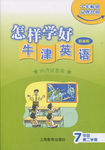题目内容
One morning more than thirty years ago, I entered the Track Kitchen, a restaurant where everyone from the humbles(卑微的) to the most powerful came for breakfast. I noticed an empty chair next to an elderly, unshaven man, who looked somewhat disheveled. He was wearing a worn-out hat and was alone. I asked if I might join him. He agreed quietly and I sat down to have my breakfast.
We cautiously began a conversation and sopke about a wide range of things. We never introduced ourselves. I was concerned that he might have no money and not be able to afford something to eat. So as I rose to go back to the counter and buy a second cup of coffee, I asked.
“ May I get you something?”
“A coffee would be nice.” Then I bought him a cup of coffee. We talked more, and he accepted another cup of coffee. Finally, I rose to leave, wished him well, and headed for the exit, at the door I met one of my friends. He asked.
“How did you get to know Mr. Galbreath?”
“Who?”
“The man you were sitting with. He is chairman of the Board of Churchill Downs.”
I could hardly believe it. I way buying, offering a free breakfast, and feeling pity for one of the world’s richest and most powerful men!
My few minutes with Mr. Glbreath changed my life. Now I try to treat everyone with respect, no matter who I think they are, and to meet another human being with kindness and sincerity.
What does the underlined word”disheveled’ mean?
A. Unfriendly B. Untidy. C. Gentle. D. Kind.
The author bought coffee for the old man because ______.
A. he thought the old man was poor B. he wanted to start a conversation
C. he intended to show his politeness C. he would like to thank the old man
How did the authr probably feel after he talked with his friend?
A. Proud. B. Pitiful. C, Surprised. D. Regretful.
What is the message mainly expressed in the story?
A. We should learn to be generous.
B. It is honorable to help those in need.
C. People in high positions are not like what we expect.
D. We should avoid judging people by their appearances.
【小题1】B【小题1】A【小题1】C【小题1】D
解析:
略

 怎样学好牛津英语系列答案
怎样学好牛津英语系列答案I was loading (装载) my truck to go to the market when I hurt my left eye. The pain was like a hot sword(剑) being shoved through my head. I fell down on my hands and knees, and I knew it was bad.
I was taken to the Erlanger Hospital in Chattanooga, and the doctors operated on me several times but couldn’t save my left eye. When they told me the news, I wanted to die.
Even after I got my fake(假的) eye, I couldn’t shake the sadness. To make matters worse, I lost my job as a transportation officer because of my lost eye. But one morning, I woke up and the TV was on, and there was a 16-year-old girl who had been badly burned on her face and legs. Her situation was much worse than mine. She wore a big smile and seemed to look right at me and said, “You can’t ever give up.” At that moment, I thought, “This is just an eye. Get over it.” And I did.
It’s been almost 12 years since my accident, and there’s nothing I can’t do now that I used to do. And although I didn’t get my old job back, I got my license again.
I read a story once. In that story, a man was feeling bad because he had no shoes until he met a man who had no feet. No matter how terrible your problem is, remember there’s always someone somewhere who’s worse off. So cheer up and smile at life!
1.Because of the accident, the writer _______.
|
A.lost both of his hands. |
B.lost one of his eyes |
|
C.was paid a lot of money |
D.knew he was not a good driver |
2.According to Paragraph 2, when the writer heard the bad news, _______.
|
A.he decided to refuse the fake eye |
B.he accepted the fact immediately |
|
C.he decided to live a happier life |
D.he felt extremely sad |
3.What can we learn from the passage?
|
A.The writer got his old job back |
B.The writer can’t see things clearly |
|
C.The writer is not strong-minded |
D.The writer has got over the accident |
4.By writing his story, the writer most probably wants to _______.
|
A.tell us his unusual experience |
|
B.ask people to help the disabled |
|
C.advised us to be positive(积极乐观的) about life |
|
D.tell us that accident can happen anytime |
My new secretary was very quick; she ________ a lot of work in one morning.
|
A.got over |
B.got across |
C.got round |
D.got through |